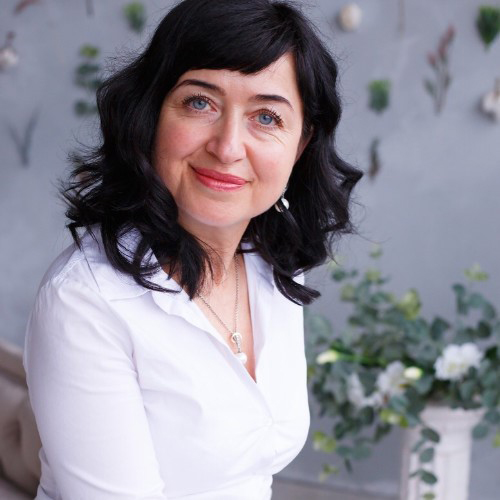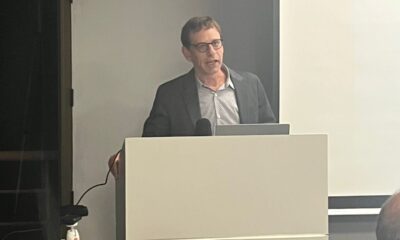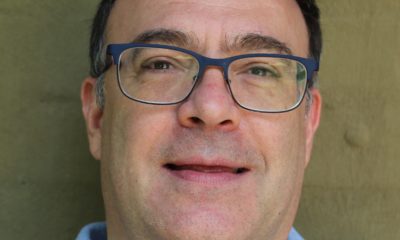
Featured Item

Ukraine war takes psychological toll worldwide
The war in Ukraine hasn’t just taken a toll on Ukrainians, but on first responders, survivors of genocide and their descendants, as well as those watching the brutal scenes on television screens across the world.
This was revealed by international psychologists and social policy experts on 13 September, the 201st day since Russia invaded Ukraine. They were speaking at a virtual conference organised by the Johannesburg Holocaust & Genocide Centre in partnership with the respective ambassadors of Ukraine, Poland, and Israel to South Africa.
The psychological torment experienced by Ukrainians has been exacerbated by the post-pandemic era, said Professor Larysa Zasiekina, the vice-president for research and international affairs at Lesya Ukrainka Volyn National University, and the founder and director of the Ukrainian Psychotrauma Center.
“Ukrainians were going to return to their offline sites, offices, and universities at the end of February,” she said. “We didn’t have time to do it because on 24 February, the war started. We just transformed from one social isolation to another. We have evidence that social isolation brings a lot of emotional distress for people all around the world.”
Hearing about how the war in Ukraine will lead to a deficit of grain and possible food shortages adds further psychological stress, said Zasiekina. “Of course, it’s a great trigger for people who experienced genocide and for people who are descendants of offspring, survivors, or victims of genocide.”
Adverse psychological effects have also been felt by those who observed or were close to the happenings of the war in Ukraine, according to Antonia Bifulco, a professor of lifespan psychology and the director of the Centre for Abuse and Trauma Studies at Middlesex University, London. “This may be other victims, but it also may be first responders such as medical people, firefighters, etc.”
Said Ukrainian Ambassador Liubov Abravitova, “Thousands of kilometres away from the conflict, you have been watching the unprovoked brutal, unfair war in my country in real-time, through a TV screen, or through your phone on social media, seeing the images of destruction.”
These images and audio clips can trigger everyone psychologically, Abravitova said.
“Wars lead to the degradation of society,” said Polish Ambassador Andrzej Kanthak. “By dealing with brutality, death, and helplessness, it brings about changes in the psyche of people who have survived the atrocities of war. Armed conflicts lead to persecution, murder, and injustice, and have a huge impact on the psyche of soldiers and civilians who involuntarily participate in an armed conflict.”
According to United Nation official figures, more than 12.3 million people have left Ukraine during the war, said Kanthak. “They left behind everything they had and knew. Today, in our modern time, we see in our country, Poland, the ordeal and trauma of thousands of refugees.”
Bifulco said the war had engendered trauma on a large scale, with Russia’s denial that it was a war only adding insult to injury.
“Fighting at places like Chernobyl and Zaporizhzhia, which have nuclear reactors, causes concern of a nuclear catastrophe,” she said.
As of 12 September, 6 239 105 refugees have crossed the Polish-Ukrainian border since the beginning of the invasion, with 93% of them women and children, said Kanthak.
Dr Yan Serdtse, a lecturer at the Hebrew University of Jerusalem, pointed out the price Ukrainian parents and their children were paying. “Fathers are separated from their wives and their children,” he said.
Since 24 February, more than 7 000 people have been killed, including 383 children, and 10 000 civilians have been wounded, said Abravitova, pointing out that these figures increase daily.
“Young Ukrainians have suffered from exposure to abuse, violence, and the loss of their closest friends and family members,” said Kanthak.
More than 41 000 civilian-infrastructure facilities in Ukraine have been damaged, said Abravitova. “It includes more than 32 000 residential buildings and houses. But when we speak about the facilities, we’re forgetting the toll on lives and damaged souls, which remains unknown.”
Kanthak said some victims were battling to put their memories of the tragic events behind them, resulting in harm to their psyche. “Daily pictures and videos of atrocities suffered in Ukraine appear continuously across the media. Fear, anxiety, and depression are prevailing emotions together with grief and even survivor’s guilt.”
Living in constant fear while struggling to find safety and security has taken a toll on Ukrainians’ mental health, said Kanthak. “Their identity has been stripped without any ability to prepare for it.”
“The war has caused a historical rift between the two brotherly people, Ukrainians and Russians. As of now, it seems that it will take countless years to heal the wounds,” said Israeli Ambassador Eli Belotsercovsky.
Some Ukrainians cannot cope with their hatred of Russia, said Zasiekina.
She advised them to not think about Russians, but about Ukrainian competence and the Ukrainian military service, which has been courageous and brave. “When they do this shift from Russians to Ukrainians, they feel proud, with courage and confidence in our victory.”
On top of this, Ukrainians weren’t well prepared psychologically for the war because they grew up in the Soviet Union, said Zasiekina. “We had a lot in common or a joint heritage in different fields of life such as economics, the arts, and the mass media. That’s why people didn’t expect such huge, strange cruelty.”
Some of the Ukrainians who migrated during the war have suffered from the psychological effect of double forced migration, said Zasiekina. “Many people from the east of Ukraine previously migrated to other places in the country, mostly to some central parts of Ukraine. Now, when the counter attack started, all these people had to migrate again, and some just became displaced people or refugees.”
On a positive note, Serdtse said, “The end of the conflict is coming soon, so Ukrainians will be in the post-traumatic stage, and will have support to build their nation again.”










